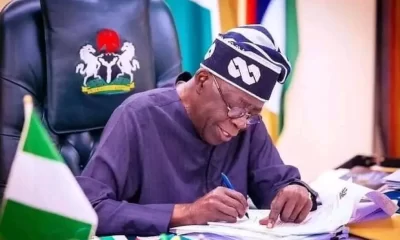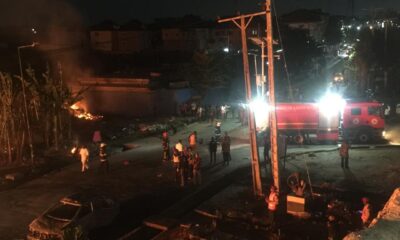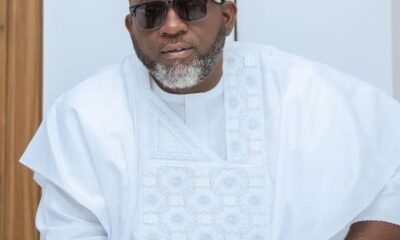NEWS
Femi Gbajabiamila, others seek support from all sectors

The National Assembly through Hon. Speaker has called for support from public and private sectors for the proposed multi-billion naira National Assembly Library project. He stated that this Library will be likened to the ‘Library of Congress’ in the United States.
The National Assembly had proposed N2bn in the 2020 budget for construction of the National Assembly Library to be domiciled with the National Institute for Legislative and Democratic Studies.
Speaker of the House, Femi Gbajabiamila, said the project’s primary aim was to deepen the legislative competence of lawmakers and strengthen research on policy formulation for the whole country, by extension.
The Speaker made this known in Abuja on Wednesday while declaring open, a public hearing on ‘A Bill for an Act to Establish the National Assembly Library Trust Fund,’ which was organised by the House Committee on Legislative Library, Research and Documentation.
He said, “We have set out to build a legislative library, archive and research centre comparable to any that exists anywhere else in the world. It is our vision that when this library is complete, it will dramatically improve the legislative capacity of the National Assembly by providing legislators and their aides with the resources they need to conduct thorough research and advance policies that serve to make our world better.
“The National Assembly Library will host professional development programmes that attract some of the best thinkers and experts from across the world. Public dialogues and other civic engagement programmes organised through the National Assembly Library will help improve the public’s understanding of the legislature’s role in our democracy.
“In addition, the National Assembly library will house the National Assembly Museum and a digital archive of our nation’s democratic journey thus far.”
He added, “This bill seeks to define the funding sources, administrative operations and management of the National Assembly Library, and to ensure that the library, from inception and through the years, will remain a centre of excellence according to the vision we have for it.”
Earlier in his opening address, the committee’s Chairman, Jonathan Gbefwi, recalled that after the inauguration of the committee two years ago, the members decided to take “a more methodical approach by embarking on extensive research and wide consultations on how not to just provide a library structure but put in place measures and policies that will sustain and maintain it even when we are long gone; a legacy for the future generations to come.”
He said, “As you are aware, the Nigerian legislature is responsible for creating laws that will foster better livelihoods and living conditions for Nigerians.
“It is, therefore, essential that the National Assembly is guided by the highest levels of intellectual input to ensure that legislators are operating with the most complete, up-to-date and relevant information for the honourable members and distinguished senators that make Nigerian laws.
“This has birthed the idea of providing a well-equipped befitting Library as well as strengthening the research engine of the National Assembly.”
The lawmaker explained that the board would function as a federal governing board existing for the sole purpose of “acquiring funds/grants generously donated to the National Assembly Legislative Library, research and resource centre by the National Assembly and interested parties/supporters such as well-meaning individuals, the public and private sector, as well as international donor organizations and countries.”
Olufemi “Femi” Hakeem Gbajabiamila was born on 25 June 1962 to Lateef Gbajabiamila and Olufunke Gbajabiamila in Lagos, Nigeria. He attended Mainland Preparatory School for elementary education and Igbobi College in 1973 for secondary education. Subsequently he enrolled at King William’s College on the Isle of Man, United Kingdom for his A-Level. He was accepted into the University of Lagos, Nigeria. He graduated from Bachelor of Law (LL.B.) with honors in 1983 and was called to the Nigerian bar in 1984.









